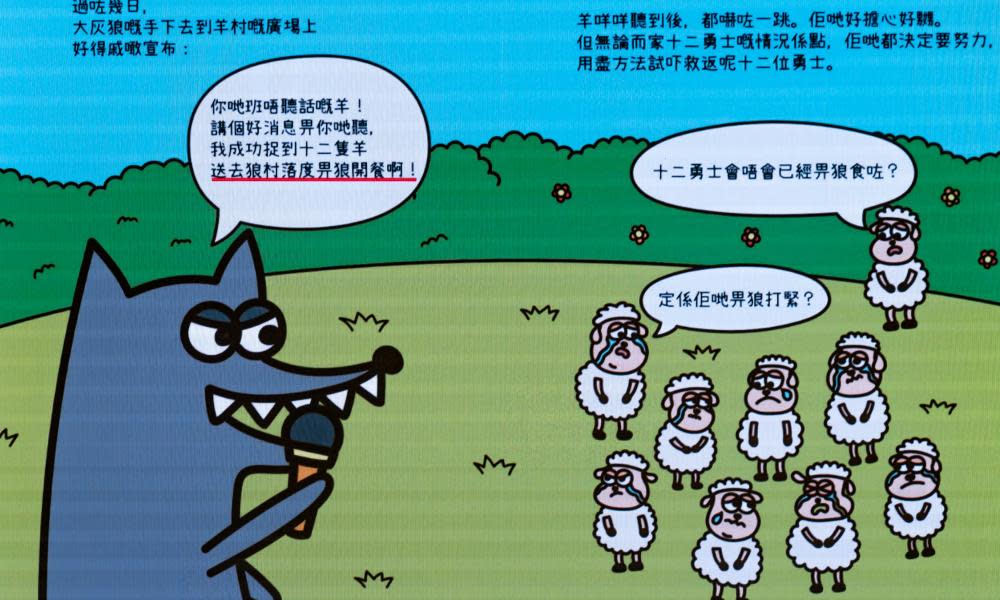Five stand trial for sedition in Hong Kong over children’s books about sheep

Hong Kong unionists have pleaded not guilty to publishing “seditious” material as a five-day trial began over illustrated children’s books.
The case revolves around a series of books published by the now-defunct General Union of Hong Kong Speech Therapists that featured cartoon sheep and wolves, which prosecutors said were analogies for Hong Kong residents and mainland Chinese that were intended to “incite hatred” toward the latter.
On the first day of the trial on Tuesday, prosecutor Laura Ng said the books characterised the two groups as hostile towards each other.
“Hong Kong residents are vulnerable minorities, Chinese rulers are cold-blooded, totalitarian and brutal, and mainland Chinese are thugs,” Ng said.
Related: A year on from Apple Daily’s closure, what’s left of Hong Kong’s free press?
Ng alleged defendants openly admitted to having based these books on the political turmoil and street protests that began in 2019 over a contentious extradition bill.
One of the books, titled The 12 Warriors of Sheep Village, was linked by the prosecutor to the capture of 12 Hong Kong fugitives by Chinese authorities in 2020.
She alleged that one of the books called for Hong Kong residents to take up arms and use violence against authorities, while another called for foreign interference in the territory’s judicial process.
A third book was said to have blamed mainland Chinese for the Covid pandemic, portraying them as “selfish, uncivilised and unhygienic”, which could incite separatist feelings among Hong Kong residents, Ng alleged.
The unionists were arrested by national security police in July last year and have been in custody since, with bail applications denied.
The defendants, two men and three women in their 20s, were executive committee members of the union.
They jointly face the charge of “conspiracy to print, publish, distribute, display and/or reproduce seditious publications” under the colonial-era crimes ordinance, with a maximum penalty of two years in jail.


